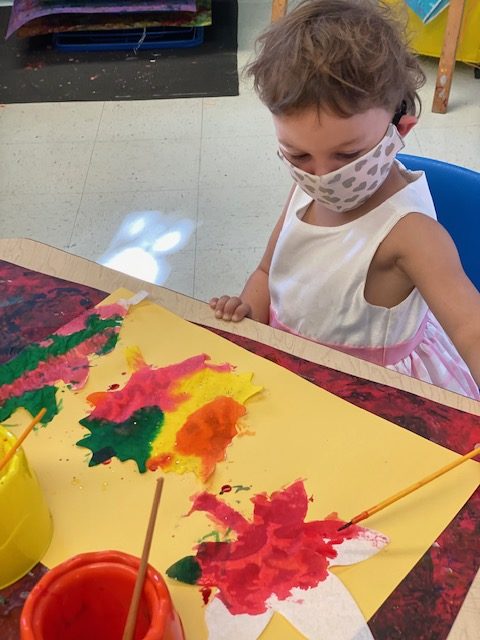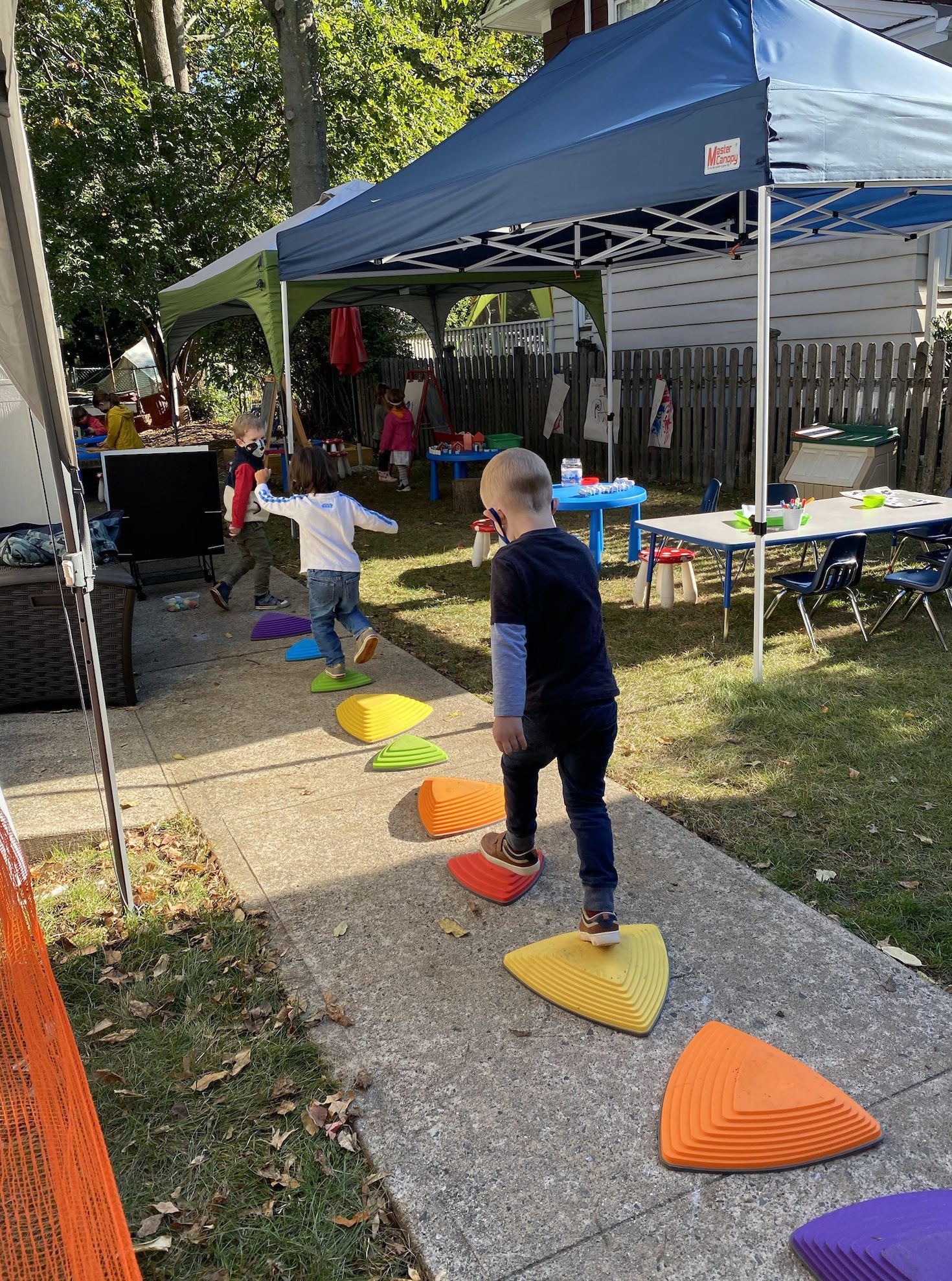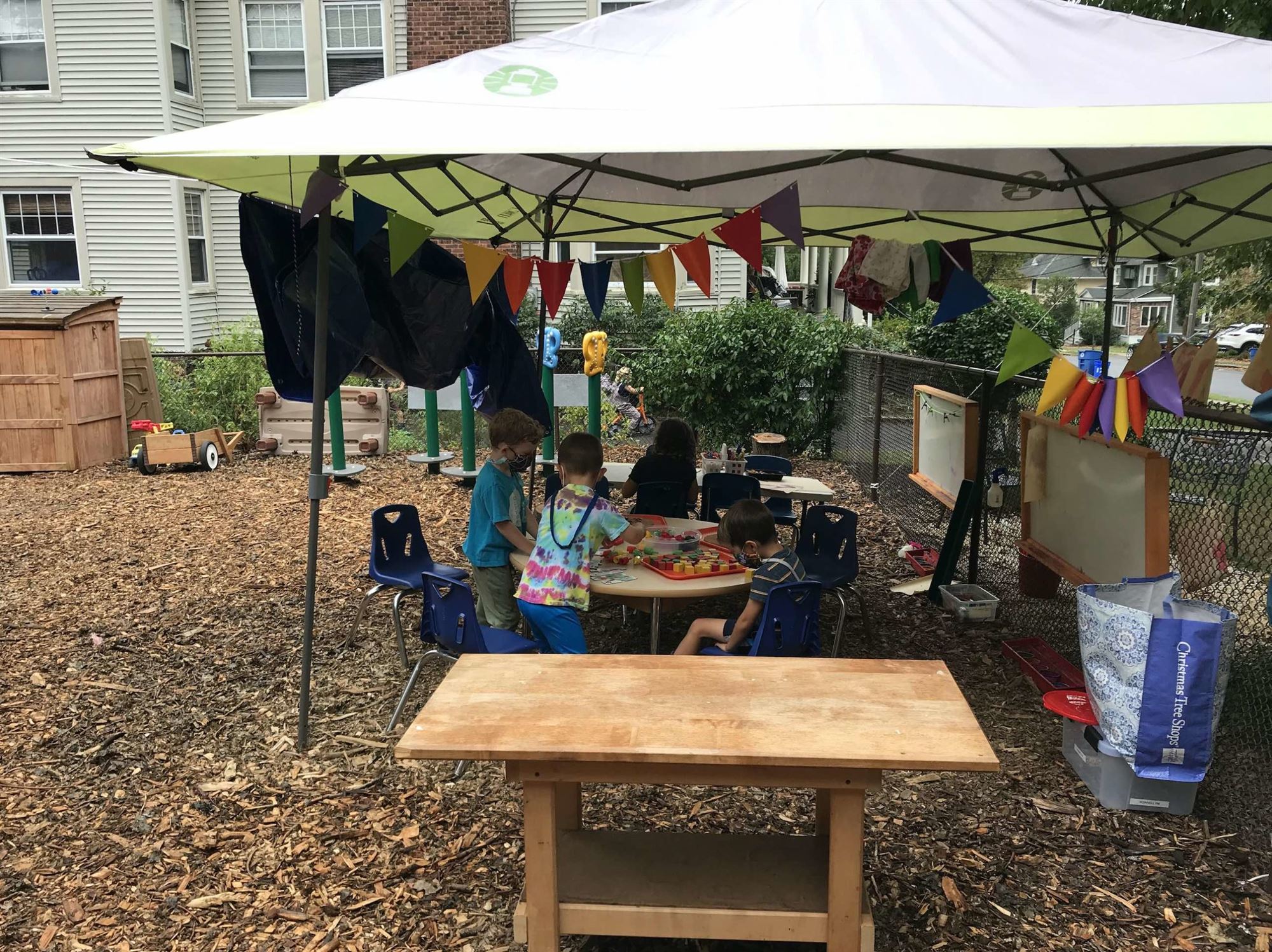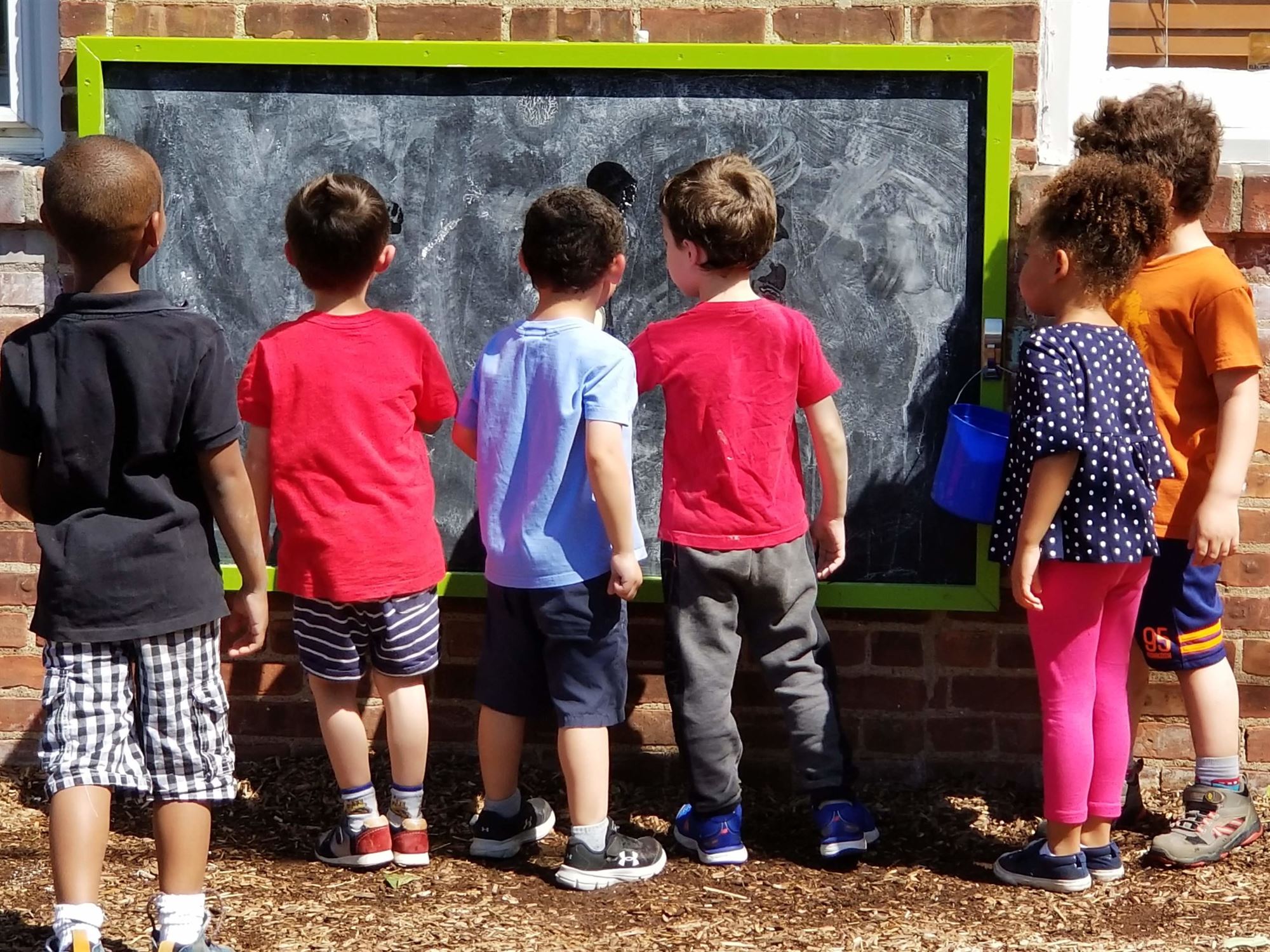For a brief moment, rewind to early March of 2020. While cases of coronavirus began to shake the planet, Children’s Learning Tree (CLT) was humming along with full classrooms and a seasoned teaching staff. Founded by Joye Allen and Sheryl Coleman in 2006, the South Orange daycare and preschool had already inked in spring field trips on the calendar.
And as the painfully familiar story goes, the closure of CLT and other daycares and preschools throughout the country instantly threatened the livelihood of small business owners and wreaked havoc on families who rely heavily on and entrust their children to an industry that is all too often under-appreciated.
Allen and Coleman offered their students a virtual learning experience for the first month, but as the closures continued, they concluded that it would not be a sustainable approach. They made the painfully difficult decision to furlough a significant amount of their staff.
“A lot of the funding that we were hoping to get was going to state-funded schools,” says Allen. “We are a private school so we were trying to find out how a small business gets the funding needed in order to deal with this pandemic.”
Children’s Learning Tree reopened in August after spending months troubleshooting how to both reinvent their business and adhere to the strict policies that were put in place by the state. Their story is just one of the many local preschools that have struggled to stay afloat to provide a vital service in a community desperate to find childcare solutions during a deeply unsettling time.

A student at Mickey Fried Preschool based at Oheb Shalom Congregation in South Orange. (Photo courtesy of Mickey Fried Preschool)
While local daycares throughout the community vary in size and scope, they all had to address how they would reopen while prioritizing both the safety of their staff and the children they care for.
“The kids hadn’t been at school in almost seven months, so those who came back were so ready to be here,” says Sloane Goldstein, the director of Mickey Fried Preschool (MFPS) at Oheb Shalom Congregation in South Orange. MFPS opened up its doors again in September and currently provides a half-day program.
Goldstein, who spoke frankly about the struggles of reopening, spent a lot of time on the phone speaking with parents about their decisions as to whether or not they would return for the fall. “We had some parents that said to us, ‘Great, we’ll be there the first day you open the doors,’” she says. “Others waited until closer to the opening to come, and others decided that they were out because some of the moms are pregnant or have newborns at home and didn’t want to risk it.”
Instead of the usual staff of nine, Goldstein is currently working with four teachers. “Mickey Fried is a very warm, nurturing community; I like to say we’re a work family. But it definitely has changed the environment here because the teachers can’t really have coffee talk in the morning because they’re not interacting with each other. They have to stay in their own classrooms. So, yes, it definitely has changed the dynamic,” she says.
“I know the type of director that Sloane is; somebody very conscientious, very concerned for the well-being of her staff and, of course, the children,” says Isabelle Wilkinson, whose three-year-old currently attends MFPS. She has an older son who previously attended MFPS and is at home attending virtual kindergarten at South Mountain Elementary School. “[Sloane] is very transparent about everything she is doing, which made us feel very comfortable in our decision to send our son.”
But that didn’t make the decision easy for Wilkinson. “We knew that there were risks. But as the closure became longer and longer, we realized that the risks did not outweigh the benefits,” she says. “We are fortunate enough that our family is not high risk, and so we were able to consider sending him back knowing how much [our son] would benefit from a routine of socializing. And these decisions were all made being so familiar with the preschool.”
Dorothy Scott, whose four-year-old daughter attends the Early Childhood Learning Center at the South Mountain Y (ECLC), also highlights that her previous experience there made her comfortable sending her child back.
“When COVID first hit, it was just really devastating for our family,” says Scott, who also started a new job this year. “We started back up in July in their summer camp, and it was a godsend. Since I’ve been such a long-time parent there, I felt very comfortable with their communications, what they were doing for cleanliness, and I did not feel one iota of trepidation about having her go back.”
Scott points out that many of the changes are tough, but necessary. “It has been difficult not seeing her classroom and not being able to go in and read to the kids, which my daughter keeps asking me to do,” she says. “But it’s just part of the protocol.”
Jennifer MacAfee, Director of ECLC at the South Montain Y, also speaks to the challenge of their current procedures. “The biggest change for the kids is pickup and drop-off, because the parents traditionally had gone into the classroom,” she says. “Some of the [children] had a couple of rough days when they first started — we might have to pry them out of their parents’ arms – but once they get into the routine of things like putting their backpacks on, they’re off and running.”
“When the youngest babies came back to us, the caregivers’ faces were covered in masks. I wondered how that would be for them,” recalls Krys Jensen, Associate Executive Director.
“It was terrible to take these crying babies – sometimes from their crying mom’s arms. But it’s an incredible testament to the staff – and also to the children – that often within days, the babies were putting their arms out and coming right to us willingly and going into the classroom.”
“From my perspective, just seeing the amount of preparation that went into the staff training was just incredible,” says James Goodger, South Mountain YMCA Executive Director. “The teachers came back committed to this challenge with Krys and Jenn working with them.”
Perhaps the most significant part of MacAfee’s experience came last spring when the East Orange and West Essex branches of the Y were open to care for the children of essential workers.
“I was extremely grateful to have that opportunity to work in that program for about a month and a half,” says MacAfee. “That really set me up to be able to do things like train our staff and know what things really worked and what didn’t work.”
“Jenn was able to bring that experience back to our training our staff, before we opened again. We are all thankful for having that experience. And I think the community trusts why and what we do,” adds Goodger.
The pandemic has also challenged preschools to rework where some programs will be conducting their classes.
Dana Cavanaugh, Director of Prospect Preschool in Maplewood, explains that she had been in close communication with the parents for months leading up to their reopening on September 14. “The school’s been around for 45 years. In order to keep it up and running, we had to pivot and find a way to meet the needs of the families,” she says. “We decided to give outdoor learning a try.”

Students at Prospect Co-op Preschool in Maplewood. (Photo courtesy of Prospect Co-op Preschool)
After receiving approval from the Prospect Presbyterian Church, Cavanaugh began working closely with the parents. Because of the co-op structure of the preschool, families took a hands-on role in the creation of an outdoor space.
“I made up a list and said I would like to have a certain number of things, and parents signed up to make it happen,” says Cavanaugh. “One parent built the rock pit, one parent built all the chalkboard easels, and one made the big Lego wall.”
The goal is for Prospect Preschool to run as an outdoor school for the entire year. “Honestly, we’re in it for the long haul,” says Cavanaugh. “It’s really important that these kids have the ability to socialize and to be with their peers, especially at such a young age when it’s so formative. I went out and bought my rain suit. We’re ready to be outdoors in the winter. To be honest, I think that’s one of the biggest challenges.”
Emilia Hallquist is a long-time Prospect Preschool parent who currently has her four-year-old daughter attending. In addition, her second grader at Clinton Elementary School previously attended. She also serves as the administrator on the board of directors. Her daughter was ecstatic when she learned that she’d be returning to school this fall.
“She had missed school and her friends and was very excited to see the playground and the teachers,” says Hallquist. “And I was excited, too. I didn’t feel any trepidation. I didn’t feel any nervousness. I felt like all the preparations had been put in place. And it was really also nice to see friendly faces, friendly parents… but it’s a trust situation, too. You’re just hoping that everyone is following the same CDC guidelines and washing hands, eliminating exposure, and wearing masks.”
Although outdoor learning is a significant adjustment, Hallquist believes that it’s already rooted in the way the preschool has worked in the past. “[Being] outside has always been part of their curriculum and I think everything is being taken day by day,” she says. “If it’s pouring down rain – which we had one day – they do some more inside time. Every parent gets notified in case they don’t want to send their kid into the classroom. But I think we’re all prepared with snow boots, and mittens, and gloves to be outside as long as possible.”
Cynthia Hicks is Director of Morrow Memorial Preschool in Maplewood, which also functions as a co-op. Similar to Prospect Preschool, she also reached out to her active group of families to discuss the best way to open up in September.
“There were a lot of parents who were very hesitant to send their kids back – which is understandable,” says Hicks. “We decided by mid-July – based on the requirements that came out – that we would try and do outdoor classes.”
A series of tents have been set up outside of Morrow Church and the playground has been divided up by classrooms. “We’ve been running rain or shine since then,” says Hicks. “So far, so good.”

Students at Morrow Memorial Preschool in Maplewood. (Photo courtesy of Morrow Co-op Preschool)
At the moment, Morrow has settled into a routine, albeit a very new one. “We have outdoor sinks, and there’s a lot of hand washing and wiping down of areas. The teachers are bringing all the materials for their pod with them,” says Hicks. “The kids are not expected to social distance within their pod, but none of the classes interact or cross paths at a close distance.” As of now, pods are limited to groups of ten.
Just one month into this new normal, Hicks is pleased. “The kids are very happy to be back. The parents are very happy that we’re outside. And our goal is to do it as long as we can,” she says. “We’re praying for a mild winter.”
Preschool owners have also noted that the ability of parents to prepare their children for the daily experience of an adjusted environment has been helpful during reopening.
“I want to give kudos to the parents who were able to communicate the concerns – and not in a panicked way,” says Joye Allen, co-owner of Children’s Learning Tree. “The children were all pretty flexible with what needs to be done.”

Children’s Learning Tree in pre-pandemic days. (Courtesy of Children’s Learning Tree)
“Parents made it easier for their children to understand – without imparting any fears we have as adults,” adds Sheryl Coleman, co-owner of Children’s Learning Tree. “And yet, being able to make it a teachable moment for them so that they can learn that we don’t share germs and that there are times when we have to follow certain rules. And so, with [parents] being able to teach their children that and us here being able to piggyback on that, it made it a whole lot easier.”
Both Allen and Coleman believe that the pandemic has highlighted the struggles of daycares and how vital they are to the community. “Preschools in themselves are vital for setting a strong foundation for our children to become solid, well-rounded learners,” says Coleman. “This pandemic has highlighted the importance of our teachers and the role they play in our students’ lives as well as the balance between partnering with our parents.”
And will the pandemic provide an opportunity for both state and federal government to pay attention to the needs of the childcare industry? “That is our biggest hope,” says Allen. “We are also a small business – not government run – and we have a personal interest in child care. Our hope is that the government acknowledges both sectors.”
“Without a doubt,” adds Coleman. “Once more attention is paid to our industry, this will lead to more open discussions about appropriate funding, policies, and the collaboration between universal pre-k and privately-run preschool programs.”

